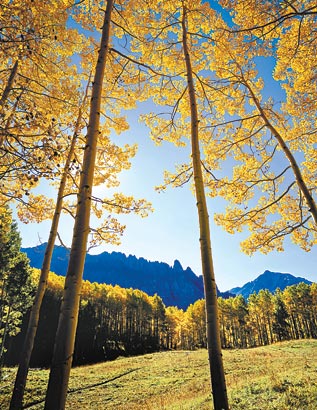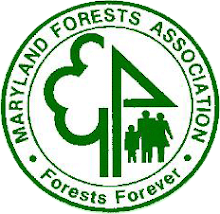 The forester Gifford Pinchot believed natural resources were ours to use as well as cherish. As we seek balance in a green economy, his ideals are relevant today.
The forester Gifford Pinchot believed natural resources were ours to use as well as cherish. As we seek balance in a green economy, his ideals are relevant today. By Sandy Bauers
Inquirer Staff Writer
At the dawn of the 20th century, the nation's forests were in trouble.
The country was headed for a timber famine. The great woodlands of the East had been cut, and those in the West were in the path of the loggers. Public land was being sold for pennies or given away outright.
To Gifford Pinchot, a young forester from Pennsylvania, it was "a gigantic and lamentable massacre."
He thought the nation's resources should belong to - and benefit - all, not just a wealthy and powerful few.
He decided to do something about it.
In 1905, largely due to his efforts, the U.S. Forest Service was created, and he became its first chief. His legacy is still being played out in forest conservation today. And his ideals are still its foundation, even as hitherto undreamed of challenges such as climate change threaten.
To be sure, the nation's foresters have never forgotten Pinchot. Two months ago, when U.S. Department of Agriculture Secretary Tom Vilsack outlined his vision for the future of the nation's forests, he began by invoking "G.P," whose guiding principle was to manage forests "for the greatest good, for the greatest number, for the longest time."
But recently, Pinchot - a two-term governor of Pennsylvania who died in 1946 - has come back into wider public focus.
Today, publisher Houghton Mifflin Harcourt is releasing The Big Burn by Timothy Egan, the story of the largest wildfire in American history.
In 1910, more than three million acres of western forest were incinerated by a wall of flames and black smoke that rolled across a parched landscape with a mighty roar. Eighty-five people died.
Central to Egan's story are the nation's forests themselves. And Pinchot's efforts to conserve them.
Ken Burns' recent PBS series on national parks touched on Pinchot's friendship with John Muir and their differing opinions on how to protect the wilderness they both loved.
Muir's romantic, spiritual philosophy was one of preservation - cordon nature off and leave it alone, basically. It led to the national park system, which now includes 84.6 million acres.
Pinchot's conservation philosophy was utilitarian - manage the lands for maximum public good, which could include recreation, protecting water quality, and, yes, logging. It led to the national forest system, which encompasses 192 million acres.
"Today, if you like that nice wooden salad bowl, you're going have to cut down a tree to get it. But, as long as the resource is used wisely and sustainably, then we can continue to have both - the forest and the product," says Lori Danuff-McKean, of the U.S. Forest Service in Milford, Pa.
"That was Pinchot's philosophy 100 years ago. And that's the same philosophy the Forest Service is using today."
Indeed, it was because the land could be used that it was saved at all, says Al Sample, president of the Pinchot Institute for Conservation.
Politically, "we never would have been able to protect 192 million acres of federal land as national park, managed strictly for preservation."
Pinchot was, perhaps, an unlikely hero. His grandfather was a timber baron who clear-cut wide swaths of Pennsylvania. Pinchot himself often touted the common welfare, yet lived in a family castle with 63 turrets - Grey Towers in Milford, now a national historic site.
He was tall, leggy, and had a bushy mustache. His sweetheart died young, but throughout much of his life, Pinchot often thought he was being visited by her.
He had studied forestry in Europe but found it lacking. In France, it was "a fussy thing practiced by a mildewed gentry," Egan writes.
Back in the United States, Pinchot became a friend of Teddy Roosevelt. They boxed, roamed the landscape outside Washington, D.C., and skinny-dipped in the Potomac.
That friendship led to Pinchot's post as the nation's first forestry chief.
In the beginning, his "Little G.P.s" - rangers sent to protect national forests - proved powerless to thwart the land thieves and loggers.
At one point, a ranger who found a swath of forest cut and replaced by a saloon wired his boss the following question: "Two undesirable prostitutes established on government land. What should I do?"
The snarky reply: "Get two desirable ones."
Eventually, Roosevelt left the White House and Pinchot returned to Pennsylvania, where he became the state's first forester in 1920. His nationwide efforts notwithstanding, Pennsylvania's forests were in terrible shape, says Jim Grace, executive deputy secretary of the Department of Conservation and Natural Resources.
Virtually the entire state had been clear-cut; fires raged out of control; streams were polluted with erosion.
Pinchot, who later became governor, wanted to set aside 6 million acres of state forest land, but never achieved it. The state now owns 2.2 million acres of forest.
In Pinchot's day, Pennsylvania's forest had been so heavily logged that there was hardly a tree older than two decades. Now, the trees are "70 to 100 years old, from one side of the state to the other," Grace says.
Its management continues to reflect Pinchot's philosophy, Grace says. "You can harvest timber. You can extract natural gas. You can certainly have recreation. You can certainly ensure you're going to have clean water."
The secret, however, is balance, and "that's always been the difficult task."
The Gifford Pinchot National Forest in Washington state is, oddly enough, held up as an example of a new detente among differing interests.
In the 1980s, the Pinchot forest was under seige by loggers. Tempers flared, suits were volleyed. It was an us vs. them battle. Spotted owl, good. Logging, bad.
Now, "a lot of environmentalists have really changed their tune on logging," says Greenpeace's forestry director, Rolf Skar. Over the last 10 years, "I saw a dramatic shift from just saying 'no' to realizing there could be common ground."
The Nature Conservancy also is adjusting its approach, continuing to manage some of its lands under the Muir tradition, but adding a significant dose of Pinchot.
The Conservancy has found that, in today's world, management makes more sense than ever. With natural regimes suppressed, controlled fires can help rejuvenate some forests. And "using" the forests - for timber, even for carbon credits - gives forest owners an economic reason to hang on to their woods instead of turning them into malls.
But now, everything might be trumped by climate change. Foresters are already seeing the migration of tree and animal species, the influx of invasive species, infestations of diseases and insects, increased wildfires, and changes in precipitation.
With threats like those, even the most pristine land has to be managed, many say.
Bob Williams, a New Jersey forester who manages private forests as vice president of Land Dimensions Engineering, thinks Pinchot would be right at home, trying to figure it all out.
Muir would be cautious, worrying that wind turbines would destroy the prairies.
Pinchot, however, would be saying, "We need energy. We can put up turbines that won't harm birds."
"Out of the conflict has to come a solution," says Williams. "What can the ecosystem provide, and how do we do that without destroying it?"














